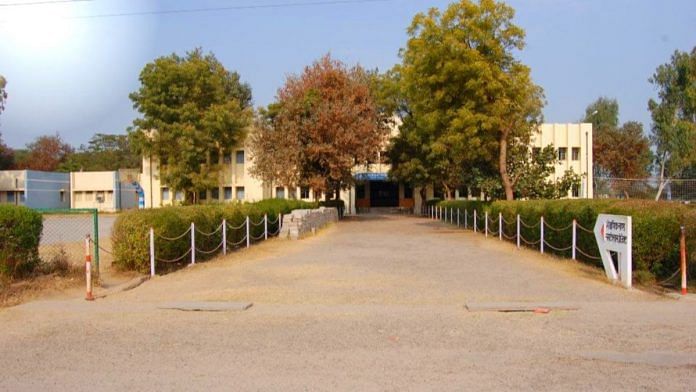
New Delhi: Jawahar Navodaya Vidyalayas (JNVs), the residential schools run by the central government, became one of the first such schools to reopen in the country Monday amid the Covid-19 pandemic.
However, according to the orders from the Ministry of Education and the Ministry of Health and Family Welfare, these schools have reopened only in states that allowed them to do so.
Apart from Sikkim, Puducherry, Andaman and Nicobar, and Lakshadweep, no other state or UT has given permission to reopen residential schools so far.
Even states like Assam and Uttar Pradesh that have permitted reopening of schools have not allowed residential schools to reopen.
According to officials in Navodaya Vidyalaya Samiti (NVS), the body that manages JNVs across the country, Sikkim, Puducherry, Andaman and Nicobar, and Lakshadweep have permitted reopening of residential schools and, therefore, JNVs reopened only in these states and UTs.
Every state and UT has come up with their own guidelines for reopening of schools. However, some general guidelines issued by the government apply to all the states.
‘Distance between students in dormitories, mess sanitation’
Talking about the reopening of JNVs, Vinayak Garg, commissioner, NVS, told ThePrint: “JNVs will reopen only in the states that allow reopening of residential schools.
“So far, only a handful of states have permitted that. Among the general SOPs that the schools are supposed to follow are adequate distance between students in dormitories, sanitation in mess…
“Even states that have allowed reopening of schools have a different approach for residential schools. They want to ensure that conditions are favourable for the same,” he added.
According to the guidelines issued by the Ministry of Education on 30 September, school authorities are supposed to maintain adequate distance between two beds in dormitories, have isolation centres on the school campus, ensure one child per desk and have 50 per cent students at one time.
The schools have also been asked to have compulsory medical support on the premises.
The central government also asked to ensure screening of every student before they start staying at the hostels.
“Only asymptomatic boarders should be allowed to join and hostels should be out-of-bound for all people except essential staff with known health status,” the guidelines stated.
Online education
Talking about studies during the lockdown, commissioner Garg said: “Just like other schools, students of JNVs have also been studying online during the school closure phase.
“For students who did not have access to online education, we have been sending printouts of school work, teachers have also been calling the students on a regular basis and taking updates from them about their progress,” he added.
“We have also organised peer group meetings through senior students, where they guided students in their neighbourhood,” Garg said.
According to the government guidelines, once students are back in the classroom, teachers should pay more attention to those who had no access to online education when schools were shut.
Subscribe to our channels on YouTube & Telegram
Why news media is in crisis & How you can fix it
India needs free, fair, non-hyphenated and questioning journalism even more as it faces multiple crises.
But the news media is in a crisis of its own. There have been brutal layoffs and pay-cuts. The best of journalism is shrinking, yielding to crude prime-time spectacle.
ThePrint has the finest young reporters, columnists and editors working for it. Sustaining journalism of this quality needs smart and thinking people like you to pay for it. Whether you live in India or overseas, you can do it here.